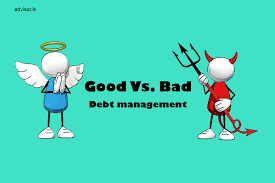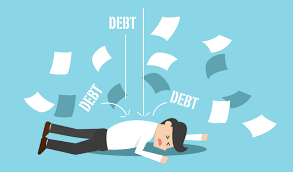What is Loan Settlement?
Loan settlement is a process where borrowers negotiate with their lenders to reduce the total amount owed on a loan. This typically happens when the borrower is unable to repay the full amount due to financial challenges. Through the settlement process, the lender agrees to accept a lump-sum payment that is less than the total outstanding amount and then closes the account.
In this process, the borrower presents all genuine reasons to the lender, such as job loss, medical issues, resignation, or emergencies. The lender has the right to review the request and then accept or deny it.
Key Points About Loan Settlement
Purpose: Loan settlement is an alternative to default, allowing borrowers to resolve their debt without legal action or prolonged delinquency.
Eligibility: Borrowers struggling with severe financial issues, such as job loss, health emergencies, or other financial crises, are more likely to qualify.
Process
The borrower (or their consultant) approaches the lender with a settlement proposal.
After reviewing the borrower’s financial situation, the lender may agree to a reduced amount.
Once the agreed amount is paid, the loan account is closed.
Impact on Credit Score
Loan settlement is recorded as “settled” or “written off” in the credit report. It negatively affects the borrower’s credit score, making it harder to obtain loans in the future.
Lender’s Perspective
Lenders prefer loan settlement to a complete loss, especially when recovering the full amount seems unlikely.
Legal Considerations
Settlement terms and conditions are formalized in writing to avoid future disputes.
Loan settlement should be considered a last resort when repayment is impossible, and borrowers should seek professional guidance to navigate the process effectively.
Should You Choose a Lawyer for Loan Settlement?
You should contact a debt settlement consultant rather than an advocate or financial advisor for loan settlement. An advocate is good when you have a suit filed. It is important to understand the difference between a lawyer, a financial advisor, and a debt settlement consultant.
Frequently Asked Questions
Is loan settlement good or bad?
Loan settlement can be both good and bad, depending on your situation. It offers financial relief by reducing the debt burden and helping avoid legal actions and prolonged harassment. However, it significantly impacts your credit score, making future loans harder to secure. It’s a viable option for those facing severe financial distress but should be used as a last resort.
Can you take a loan after settlement?
Yes, you can take a loan after settlement, but it may be difficult. Loan settlement negatively impacts your credit score, and lenders might view you as a high-risk borrower. Improving your credit score and maintaining a good financial history can increase your chances over time.
Can I cancel a loan agreement?
Yes, you can cancel a loan agreement, but it depends on the terms and conditions of the agreement. Many lenders allow cancellation within a cooling-off period, typically a few days, but you may need to pay processing fees or other charges.
What is the settlement of a loan?
Loan settlement involves negotiating with the lender to repay an amount less than the total outstanding loan, helping borrowers resolve their debt. In contrast, loan closure means completely paying off the full loan amount and officially closing the account.
What is the minimum percentage for a loan settlement?
Banks typically settle loans for 40-60% of the outstanding amount, depending on your financial situation. However, with the assistance of expert loan settlement consultants, you could negotiate and settle your loan for as low as 20-30% in some cases.
Final Words
If you have genuine financial issues, you should opt for loan settlement. A loan settlement can give you huge relief and also ensure you are free from any liabilities. It can help you start your life all over and gives you a Total Money Makeover.
If you like this article, make sure to share it with your friends or ask them to connect to us on Facebook, or Twitter.

